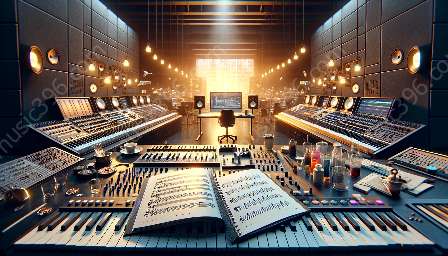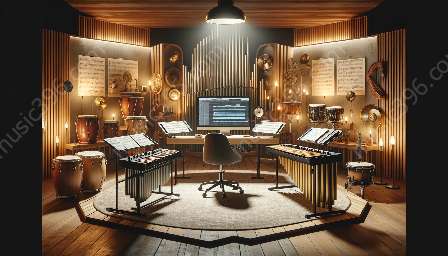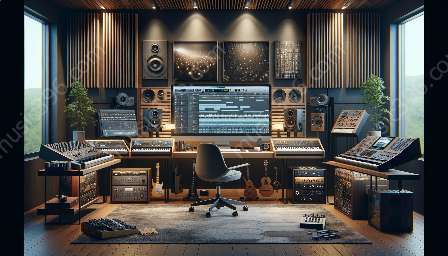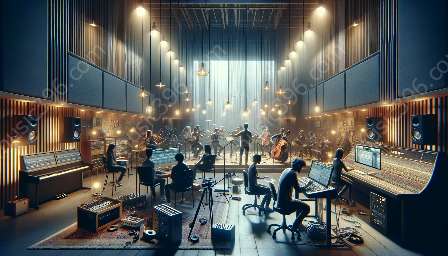Music production is a meticulous and creative process that involves music composition and audio engineering. In this comprehensive guide, we'll delve into the various stages of music production, from composition to recording, editing, and mixing, and explore the crucial tools and techniques used in the industry.
The Role of Music Composition
Music composition is the foundation of the music production process, laying the groundwork for the creation of a new musical piece. Composers use their artistic vision and technical skills to craft melodies, harmonies, and rhythms that form the basis of a song.
During the composition stage, composers may work with traditional instruments or digital audio workstations (DAWs) to arrange and structure their musical ideas. This phase requires a deep understanding of musical theory and the ability to translate emotion and storytelling into musical language.
Harmonious Collaboration: Composer and Producer
In many cases, the composer collaborates closely with the producer, who oversees the overall vision and direction of the music production. The producer's input can greatly influence the final outcome, shaping the composition to align with the desired aesthetic and market appeal.
Mapping the Production Journey
Once the musical composition is finalized, the production journey begins with a series of crucial stages, each contributing to the creation of a polished and compelling piece of music.
1. Pre-Production
During pre-production, the composer and producer outline the project's goals, select the appropriate instrumentation, and plan the recording process. This phase involves creating a detailed roadmap for the upcoming recording sessions, ensuring that all necessary resources and arrangements are in place.
2. Recording
The recording stage involves capturing the musical performance using microphones, recording interfaces, and digital or analog recording equipment. Whether it's a solo artist, a band, or an orchestra, the goal is to capture the essence of the composition with high fidelity and emotional depth.
3. Editing and Arranging
Once the raw recordings are captured, the editing and arranging phase comes into play. This involves refining the performances, correcting any imperfections, and organizing the individual elements of the composition to create a cohesive and polished sonic tapestry.
4. Mixing and Mastering
These final stages of music production are dedicated to fine-tuning the sonic elements of the composition. Mixing involves balancing and processing individual tracks to create depth, clarity, and a sense of space within the mix. Mastering focuses on enhancing the overall sound quality, ensuring the song is sonically optimized for various playback systems.
The Art of Audio Engineering
Throughout the production process, the role of audio engineers is paramount. Audio engineers bring technical expertise and creative problem-solving to the table, using advanced recording and processing techniques to sculpt the sonic identity of the music.
From microphone selection and placement to signal processing and sound manipulation, audio engineers collaborate closely with composers and producers to fulfill the sonic vision of the composition. Their attention to detail and sonic craftsmanship elevate the music to new heights, creating an immersive and emotive listening experience.
Embracing Technology: DAWs and Plugins
Modern music production heavily relies on digital audio workstations (DAWs) and an extensive array of audio plugins. These tools empower composers, producers, and audio engineers to manipulate and refine every aspect of the music, from individual notes to complex arrangements.
DAWs provide a versatile platform for composing, recording, editing, and mixing music, while audio plugins offer specialized processing capabilities, ranging from dynamic control and equalization to time-based effects and virtual instruments.
Conclusion: Crafting Sonic Stories
Music production is a collaborative journey that intertwines the art of composition with the technical finesse of audio engineering. By understanding the intricate process and tools involved, aspiring musicians and enthusiasts can embark on their own creative odyssey, shaping musical narratives and evoking emotions through the power of sound.




























